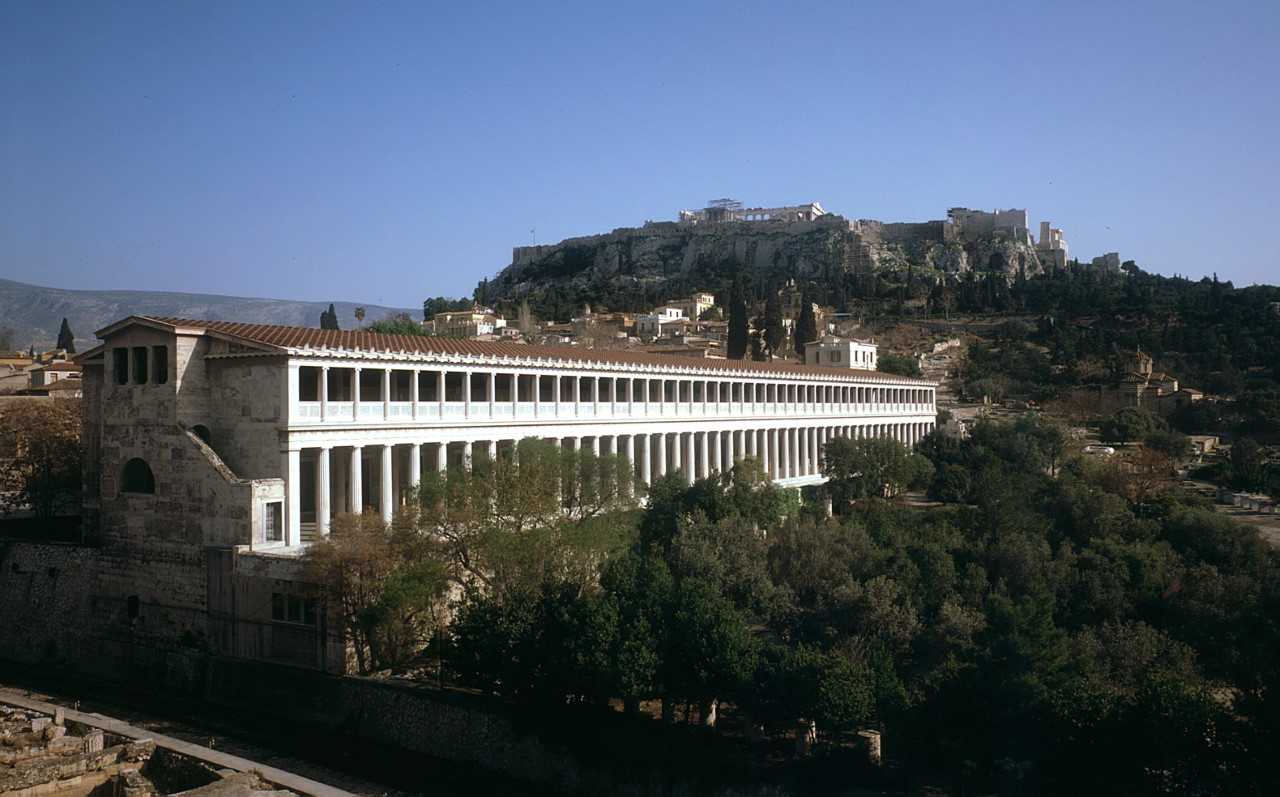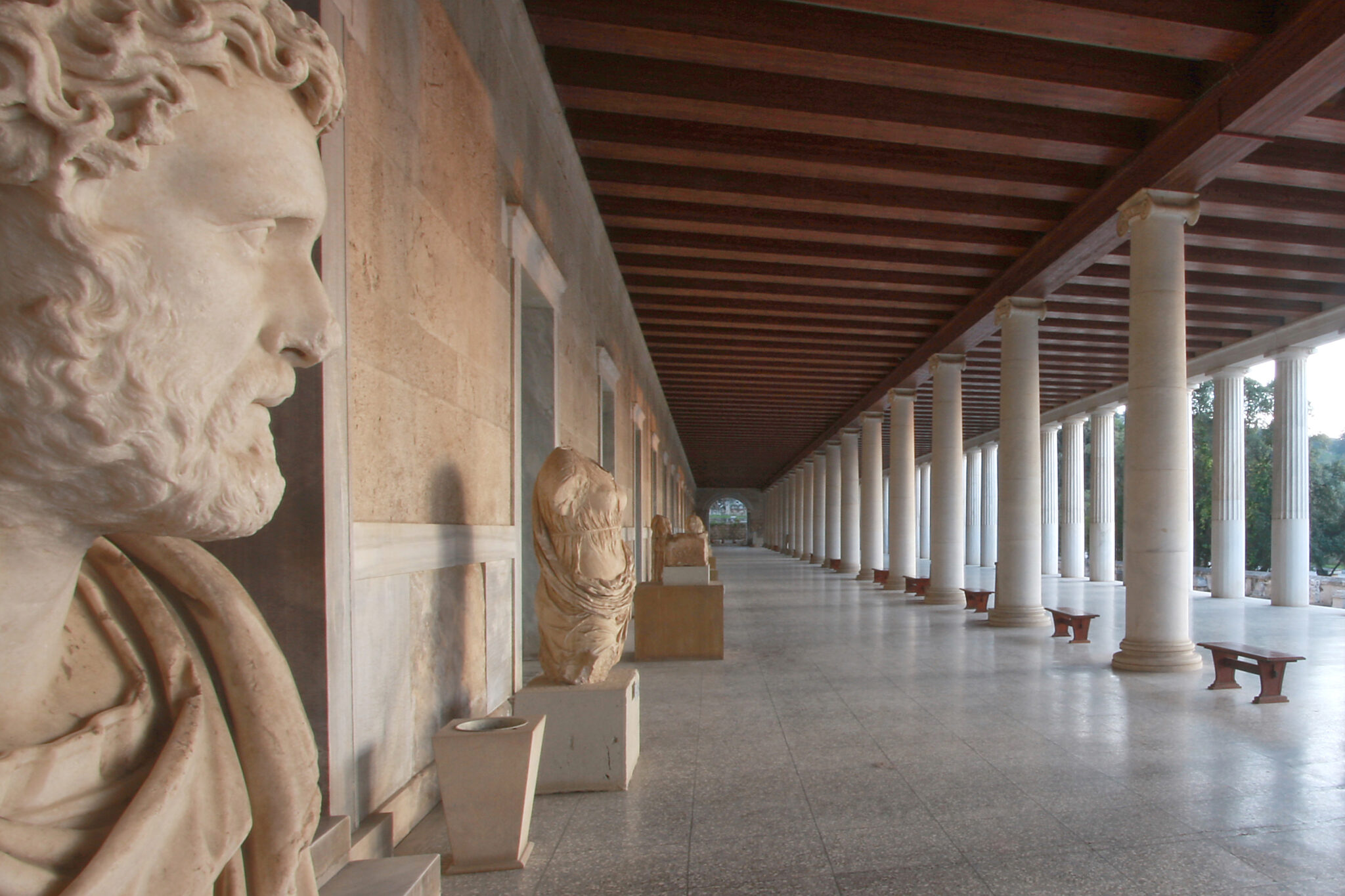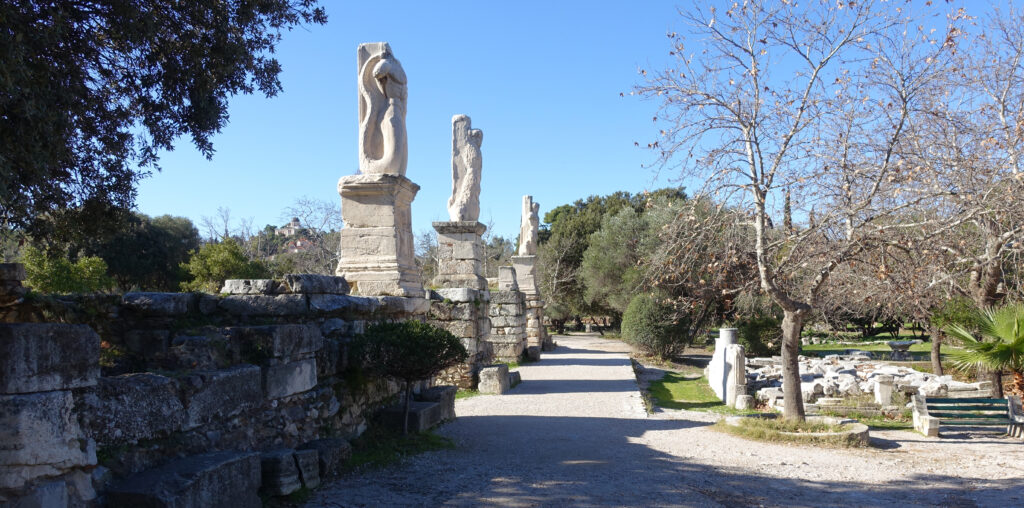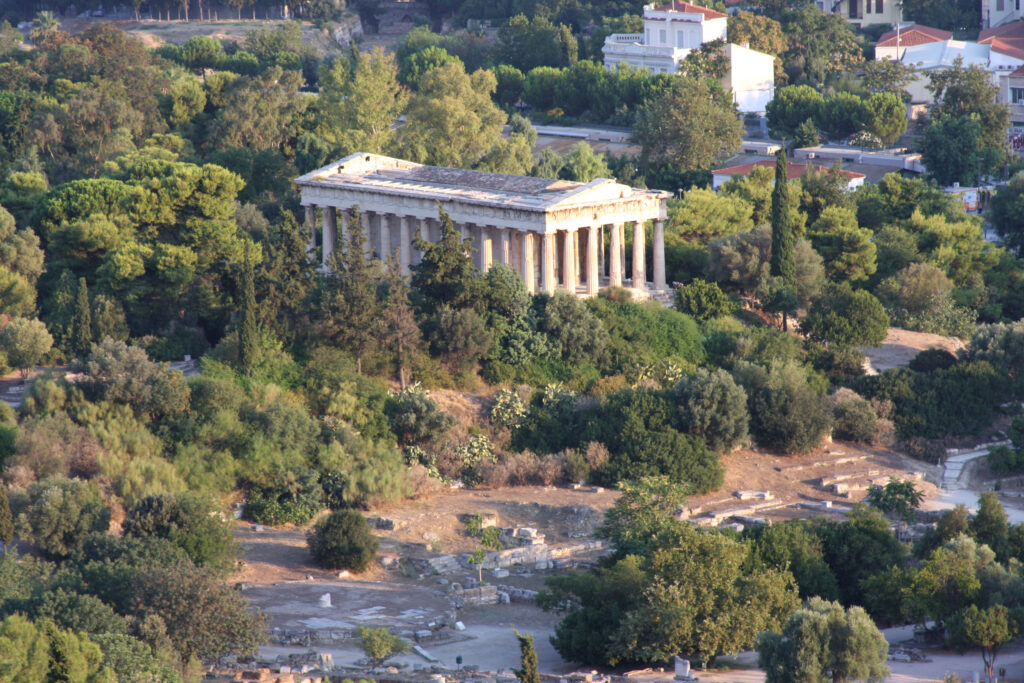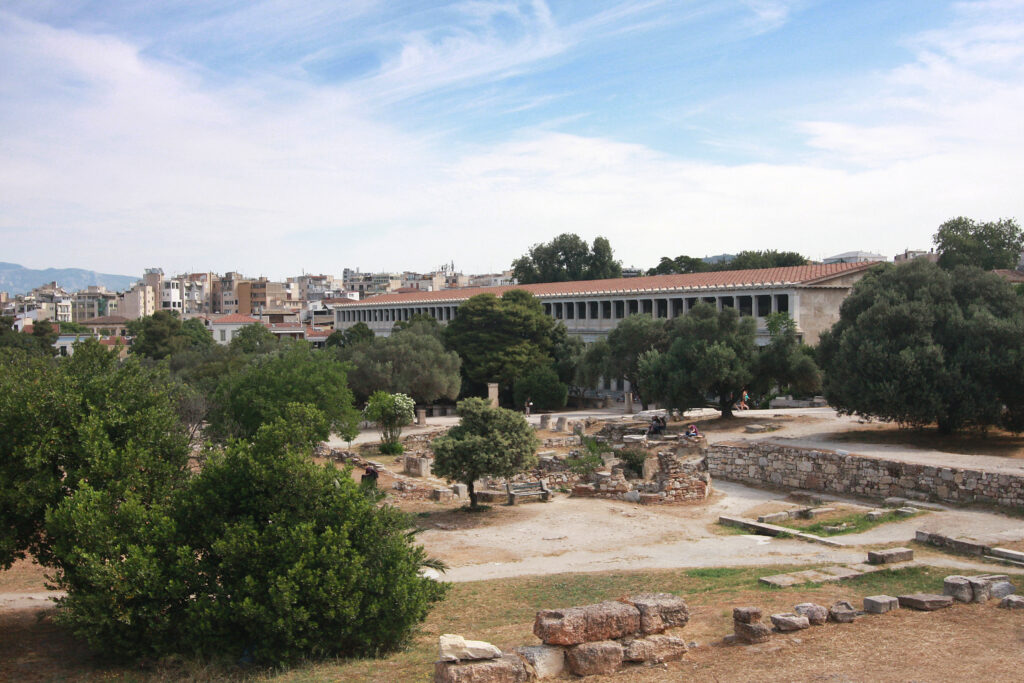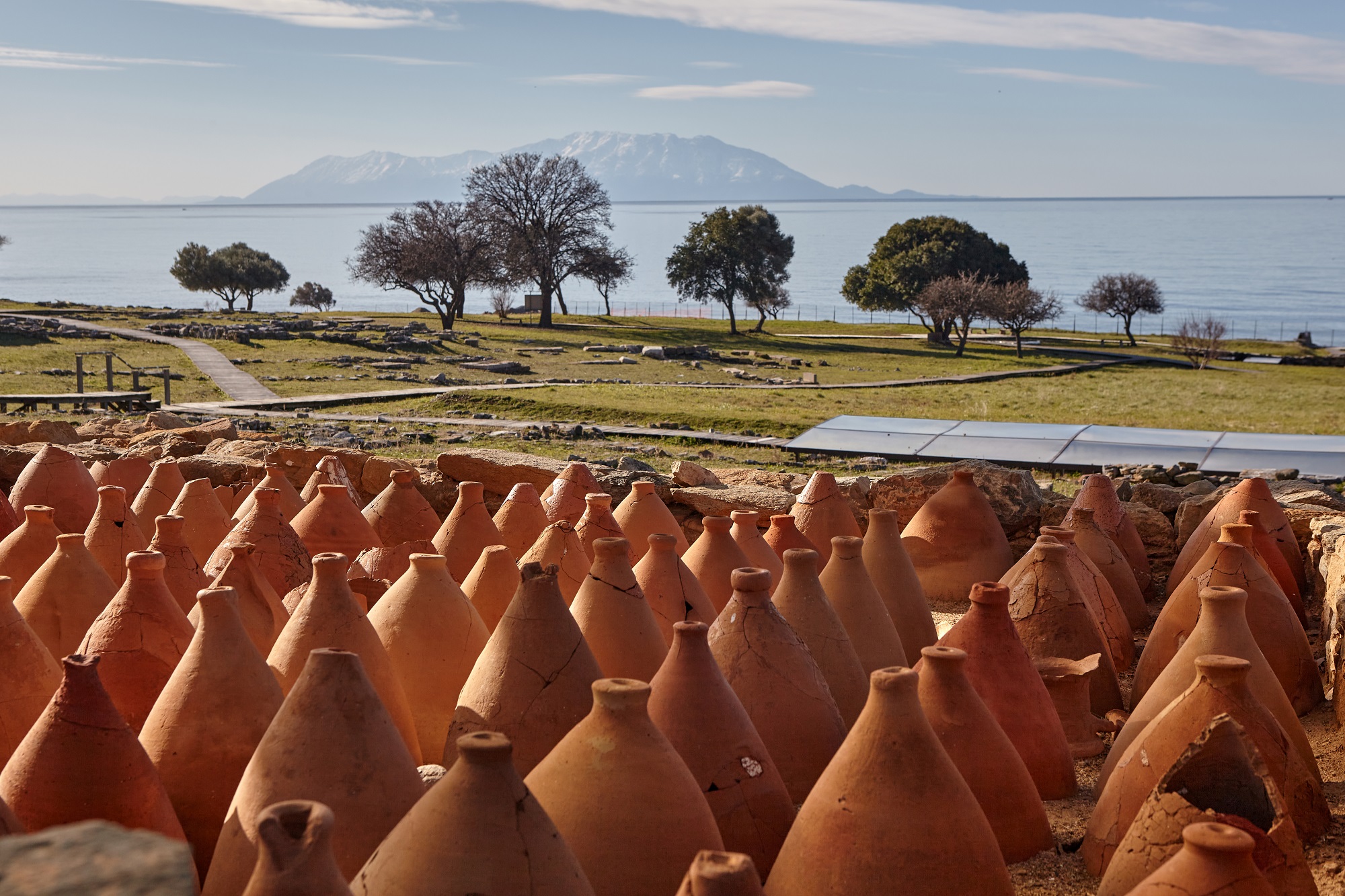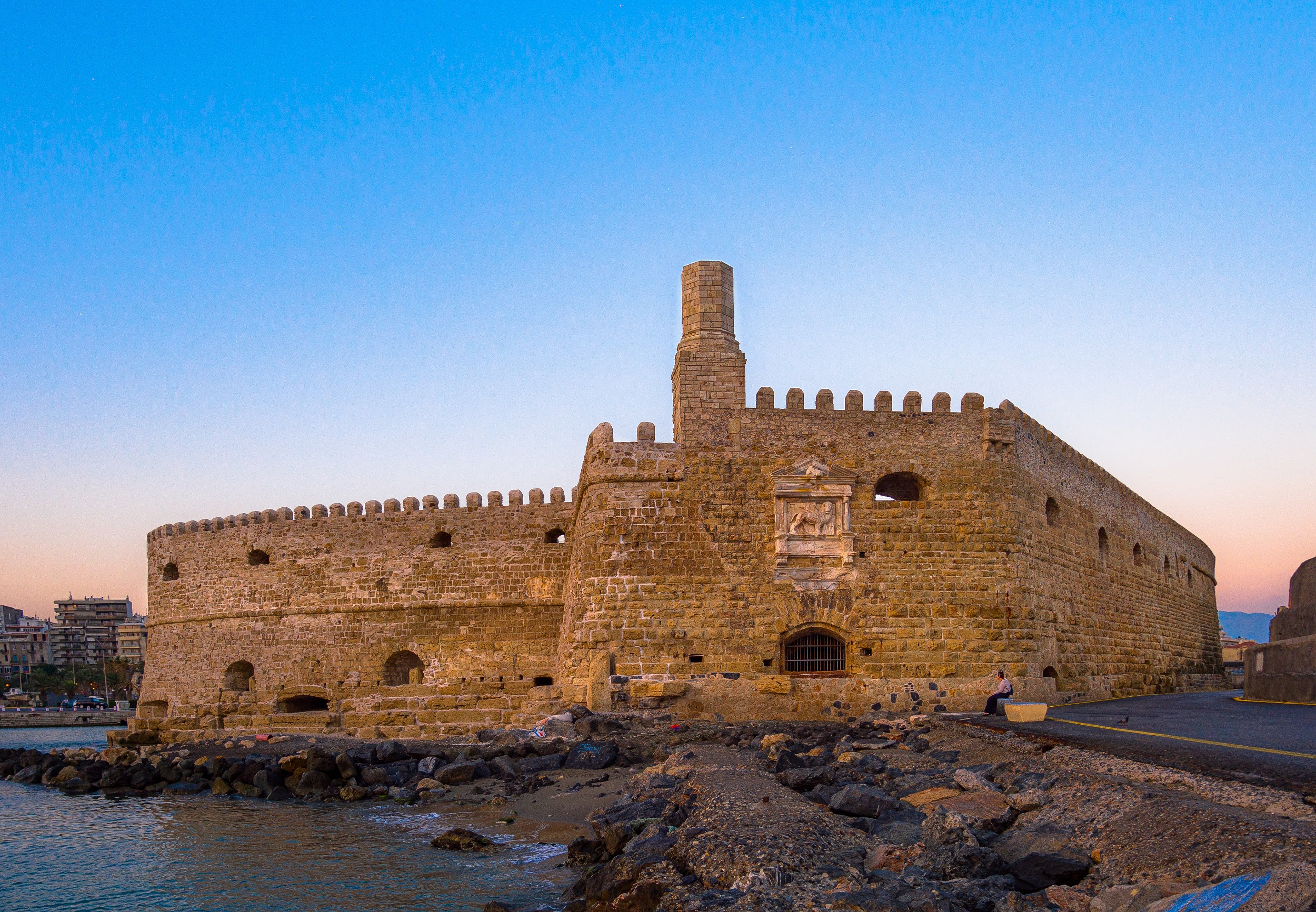Nothing reflects the evolution of democracy in Athens more effectively than the successive buildings in the ancient Agora, an open-air space bounded by three hills: the Acropolis, the Areopagus and the Agoraios Kolonos.
This large open square was the centre of public life, attracting Athenians in every way: for shopping, religious ceremonies, theatrical events, sports games, meetings and much more. It is believed that it was here that Aeschylus’ first tragedies were performed. Anything could happen in the Athenian Agora. Administrative, legal and commercial buildings (stoas), altars, temples and sanctuaries, fountains, an odeum, a library, the Bema, monuments and votive offerings by donors, spaces for walks and philosophical pursuits lined the ancient road leading from the Dipylon to the Acropolis, where the steps of participants in the magnificent Panathenaic procession resounded.
The Agora hill, i.e. the Agoraion Kolonos, was dominated by the widely known Theseion, the temple of Hephaestus and Athena Ergane, who were worshipped together, and the best preserved temple of the 5th century BC. The public buildings that accommodated the institutions of Athenian democracy have been uncovered along the foot of the hill: the Bouleuterion, where laws were drafted, the Tholos, seat of the executive power representatives, and the State Archives.
From the square, ancient Athenians would make their way to the site of the people’s meetings on the Pnyx hill, passing through some of the most densely populated districts of the city. All great politicians and thinkers of the time, e.g. Socrates, Themistocles, Aristides, Pericles and Demosthenes, acted in the ancient Agora and the Pnyx, but it was the anonymous and all-powerful Athenian people who had the first say, not only by participating, but also by directly shaping the institutions of the Athenian democracy.
Access
24 Adrianou Street
10555, Athens
4 minutes from Monastiraki Square
14 minutes from Syntagma Square
Lines 1 & 3, exit at “Monastiraki” station
Line 1, exit at “Thiseio” station
Lines 025, 026, disembark at “Monastiraki” stop
16 minutes from Syntagma Square
Opening hours
April 1 – August 31
Daily: 08:00 – 19:30
September 1 – 15
Daily: 08:00 – 19:00
September 16 – 30
Daily: 08:00 – 18:30
October 1 – 15
Daily: 08:00 – 18:00
October 16 – 31
Daily: 08:00 – 17:30
November 1 – March 31
Daily: 08:00 – 17:00
The site remains closed on the following dates and public holidays: January 1, March 25, May 1, Easter Sunday, December 25 & 26.
Tickets
Full: €20,00
Reduced: €10,00
Amenities
Contact
Guardhouse of the Archaeological Site of the Ancient Agora
T: +30 210 3210185
Ephorate of Antiquities of the City of Athens
T: +30 210 9238724, +30 210 9238747
E: efaath@culture.gr

